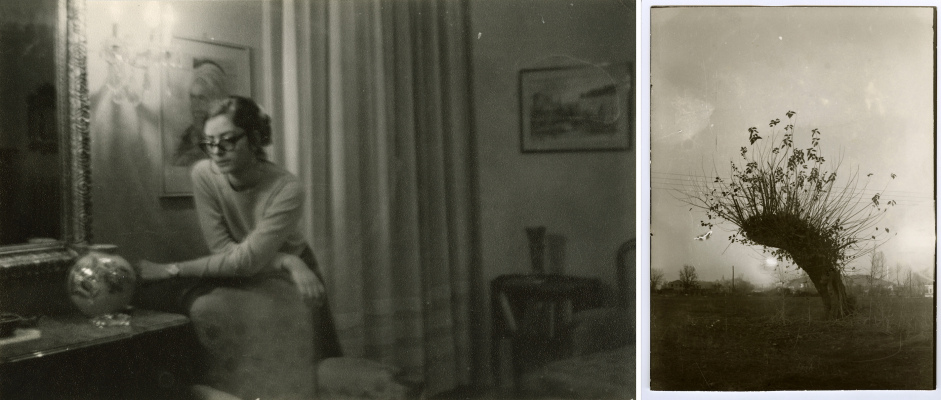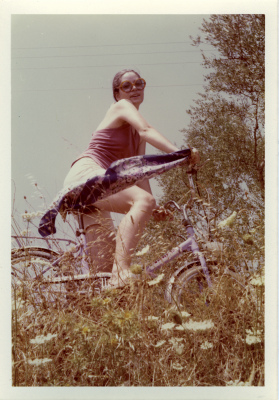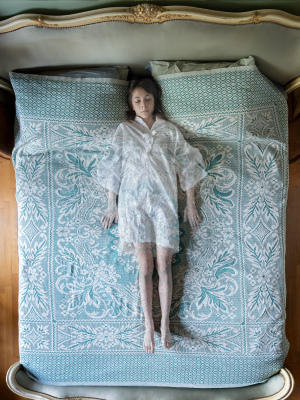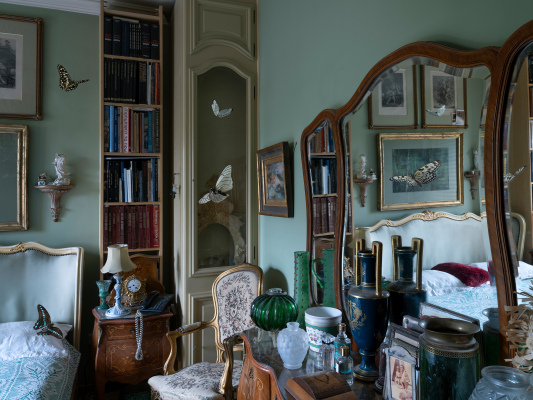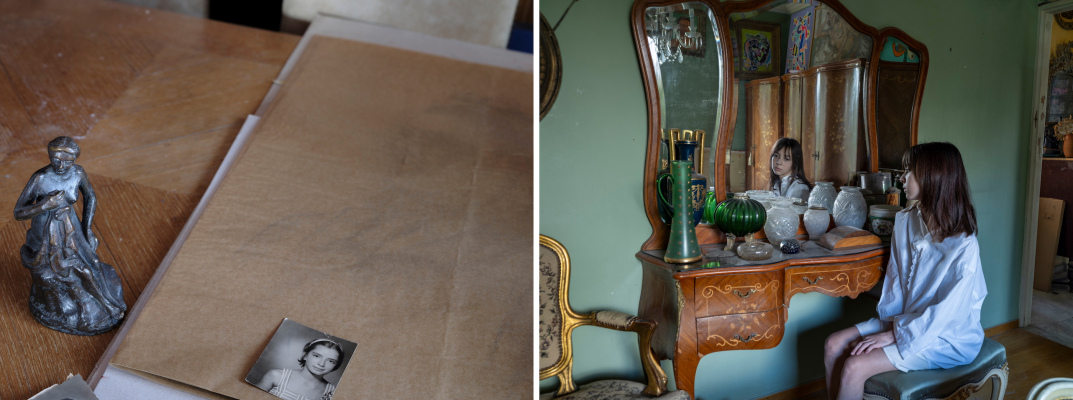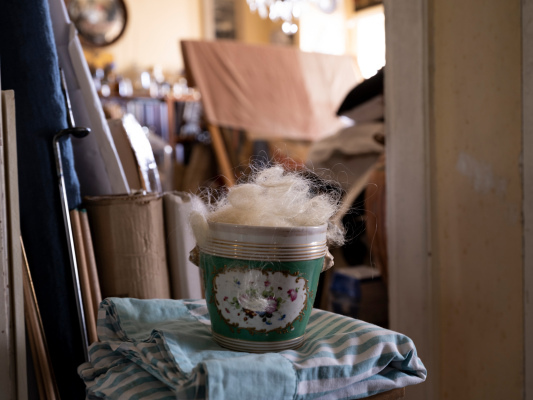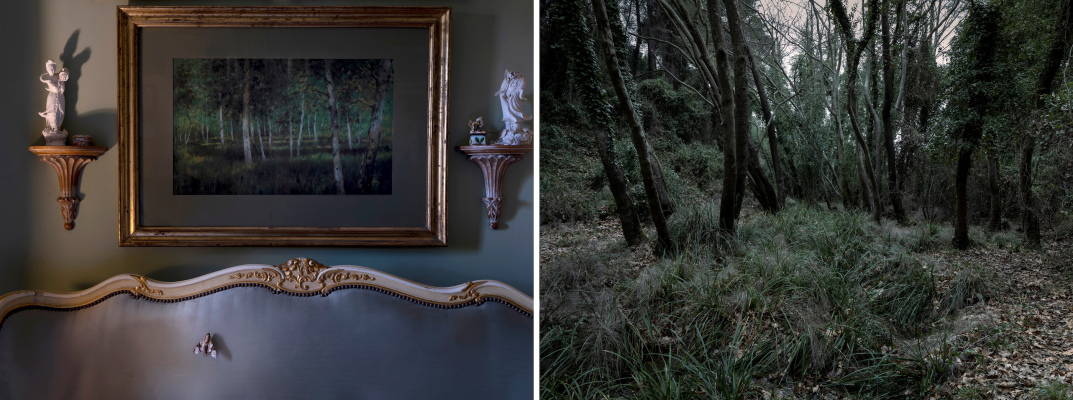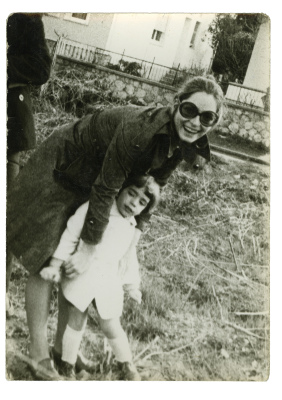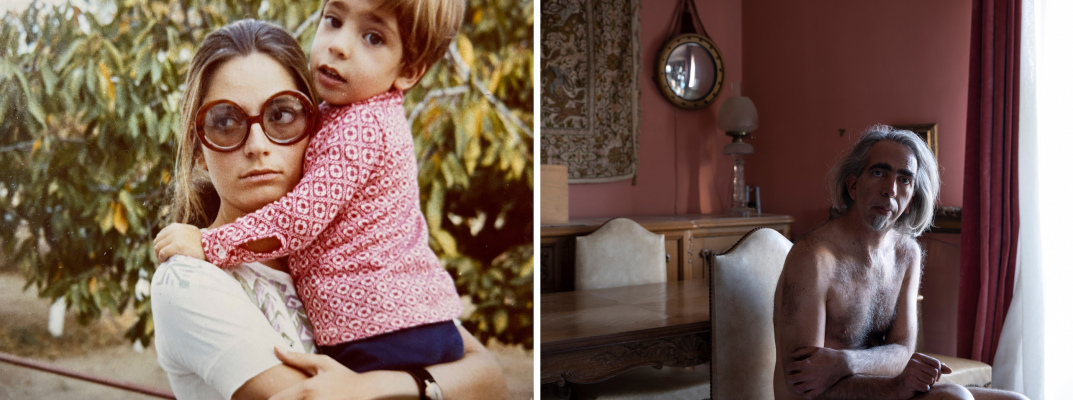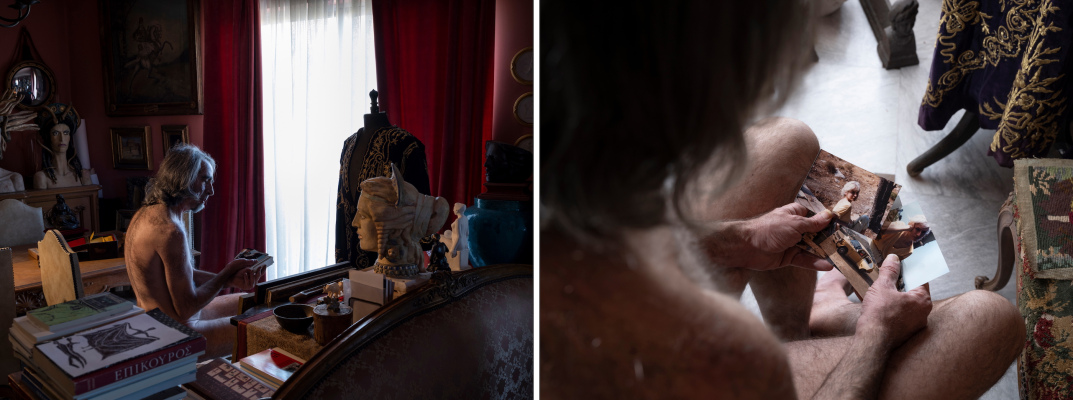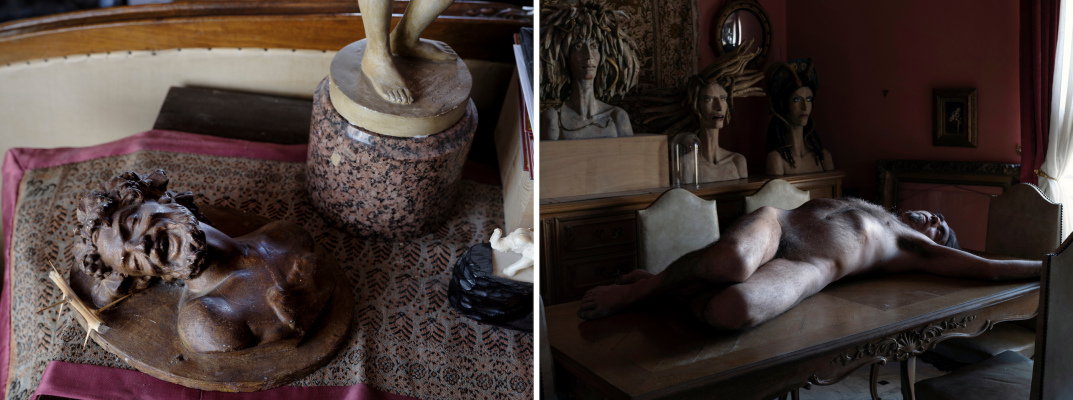A Stage of Absence How can one speak about absence? Of something indefinite and invisible, yet at the same time real and physical? The rustle of leaves, a fleeting scent, the weight of nostalgia? After the sudden death of his sister, painter & performer Stefanos Chandelis asked me to document the home where Olga lived and worked. I do not know whether he wished to preserve her memory through photography, or if this was a ritual of mourning and reconciliation. For me, Olga existed only as an inferred presence, pieced together from her traces: old photographs, personal items, even plastic bags full of strands of her white hair; a material life now reduced to an urn. What began as a documentation, soon evolved into a performative exploration of absence. Inspired by her traces, fragments of her life were reimagined and recomposed as embodied memories. This process created a fragile, liminal reality, where strangers inhabited her private space, recreating her intimate and imaginary cosmos. Olga’s absence was reimagined with direct reference to classical view camera mise-en-scène thus transforming the camera into a performative tool, but also to the iconography of ecclesiastical paintings, that she worked on, as an art conservator. Three women performed different dimensions of her identity: adolescence, embodied by a girl resembling the artist as a child; the mature artist, depicted as a naked figure symbolizing the clarity and directness of artistic creation; and the elder woman she never became, played by an actress who adapted to directed roles. These selves were set in dialogue with the figure of her brother who appears to emerge out of Dušan Makavejev's cinematic anarchy, yet at the same time integrates the formal gravity of the paintings of Mantegna, Goya and Courbet. His role embodies a paradox: by performing next to these figures his grief is not a process of passive remembrance, but an active dialogue with the sister who was also a maternal figure to him. His intimate and loving gaze is the lens through which we are invited to view this intricate relationship. In this series Olga’s home is both a stage and an archive. A woodland painting above her bed emerged as a symbolic threshold: an escape into nature that balanced her life, and a portal into the dreamscapes that inspired her enigmatic art. This work-in-progress does not attempt to restore what was lost. It looks into mourning itself: fragmented and performative, it becomes an active dialogue between life, memory, and imagination. | Για την Απουσία |
Living her Life | 2022
Work in progress | open series
